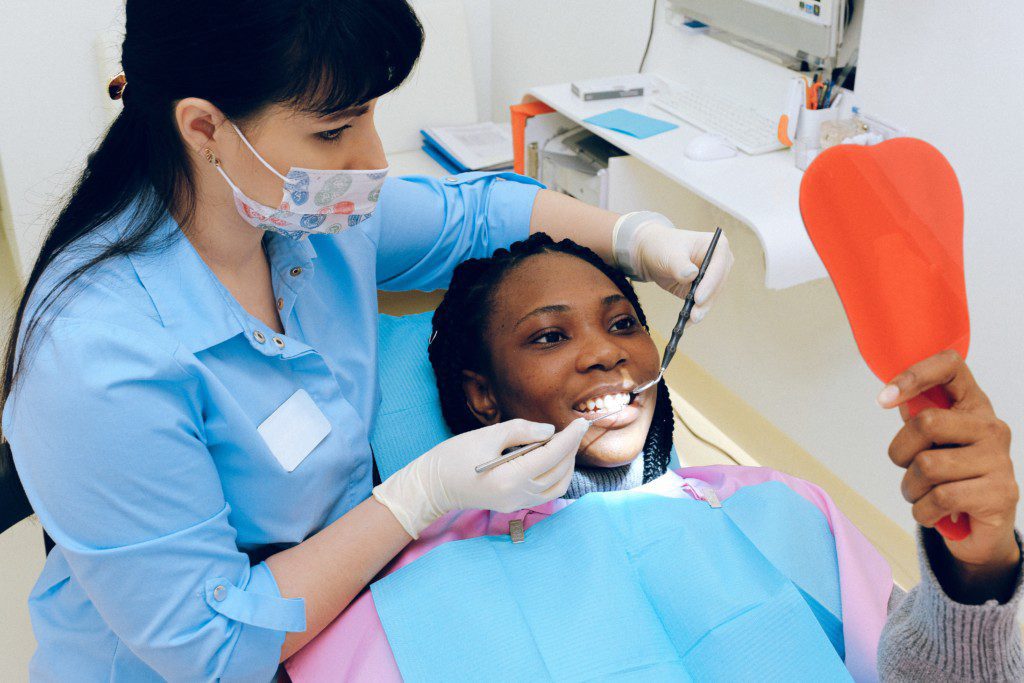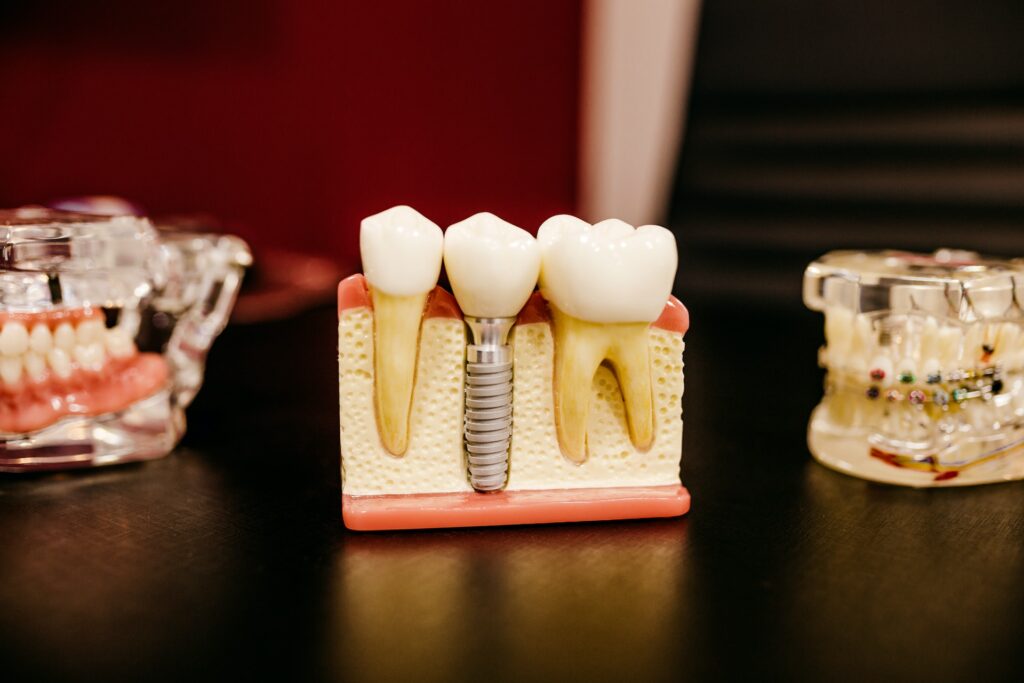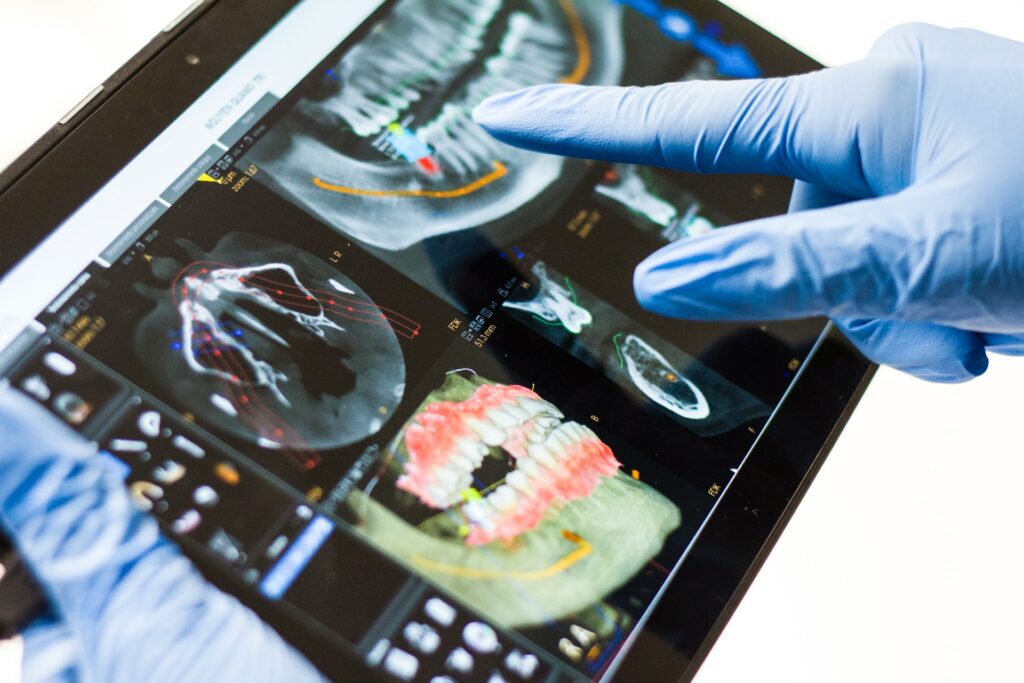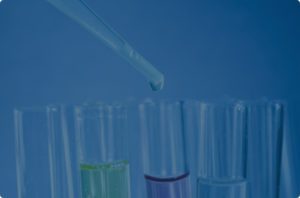10/30/2023 | pH | 8 MINUTE READ
The Surprising Power of Saliva pH in Dental Health

Dentistry often delves into complex procedures, high-tech equipment, and advanced treatments, but sometimes, the most crucial aspects of oral health are hiding in plain sight. One such hidden gem is the pH of saliva—a humble yet critical factor that can significantly impact our dental well-being. In this article, we’ll explore the importance of saliva pH in dental health, understand what it means, and uncover how it influences our oral ecosystem.

Factors Influencing Saliva pH
Saliva, our unsung oral hero, plays a crucial role in maintaining a healthy mouth. It cleanses, lubricates, and protects our teeth and gums from harmful bacteria. One of its critical functions is maintaining an optimal pH balance in the oral cavity, which is essential for overall oral health.
Understanding pH
pH, or potential hydrogen, is a measure of a solution’s acidity or alkalinity. It ranges from 0 (highly acidic) to 14 (highly alkaline), with 7 being neutral. Saliva, ideally, has a pH range between 6.7 and 7.4, slightly on the acidic side of neutral. This delicate balance is crucial for various oral processes.
Factors Affecting Saliva pH
Several factors can influence saliva pH, potentially disrupting this delicate balance and compromising oral health. Here are some key influencers:
- Dietary Habits: Our food and beverage choices significantly impact saliva pH. Consuming sugary or acidic foods and drinks, such as soda, citrus fruits, and processed snacks, can lower saliva pH, creating an acidic environment in the mouth. This acidic environment favors the growth of acid-producing bacteria, increasing the risk of tooth decay and gum disease.
- Tobacco Use: Smoking or chewing tobacco is not only harmful to overall health but also detrimental to oral health. Tobacco products contain various chemicals that can reduce salivary flow and alter saliva’s composition, leading to a lower pH level. This acidic environment further promotes the growth of harmful bacteria and increases the risk of oral health problems.
- Dry Mouth: Xerostomia, or dry mouth, is a condition characterized by reduced salivary flow. This can be caused by medications, certain medical conditions, or dehydration. Saliva’s buffering capacity is diminished with reduced flow, making it more susceptible to pH changes induced by dietary acids or bacteria.
- Medications: Certain medications, such as antihistamines, antidepressants, and blood pressure drugs, can have side effects that reduce salivary flow and, consequently, affect saliva pH.
- Gastroesophageal Reflux Disease (GERD): GERD, a condition where stomach acid flows back into the esophagus, can also influence saliva pH. The acidic reflux can enter the mouth and lower saliva pH, increasing the risk of tooth erosion and dental problems.
Maintaining Optimal Saliva pH
Preserving a healthy saliva pH is essential for maintaining oral health. Here are some tips to help keep your saliva pH in check:
- Limit Sugary and Acidic Foods and Drinks: Minimize consumption of sugary beverages, acidic fruits, and processed foods. Opt for water, unsweetened beverages, and healthy snacks like fruits, vegetables, and nuts.
- Quit Tobacco Use: Tobacco use is detrimental to overall health and oral health. Quitting smoking or chewing tobacco can significantly improve saliva pH and overall oral health.
- Practice Good Oral Hygiene: Maintain regular brushing and flossing to remove plaque and food debris, which can contribute to acid production. Regular dental checkups are also essential for early detection and treatment of oral health issues.
- Stay Hydrated: Drink plenty of water throughout the day to keep your mouth moist and maintain adequate salivary flow.
- Consider Sugar-Free Gum: Chewing sugar-free gum can stimulate saliva production, helping to neutralize acids and maintain a healthy pH balance.
- Consult Your Dentist: If you experience dry mouth or have concerns about your saliva pH, consult your dentist. They can assess your oral health and provide personalized recommendations.
Remember, a healthy saliva pH is crucial for maintaining a healthy mouth. By following these tips and consulting your dentist regularly, you can help keep your oral health in top shape.
Consequences of Imbalanced Saliva pH
Maintaining a balanced saliva pH is essential for safeguarding our dental health. When saliva pH deviates from the ideal range, it can lead to a cascade of oral health issues, primarily affecting the teeth and gums.
- Acidic Saliva: When saliva pH dips below 5.5, the oral environment becomes excessively acidic, paving the way for enamel erosion. Enamel, the protective outer layer of teeth, is remarkably strong, but it is not impervious to the relentless onslaught of acids. Prolonged exposure to acidic conditions can wear away enamel, gradually eroding this vital barrier.
- Enamel Erosion: Enamel erosion is a stealthy process, often progressing unnoticed until significant damage has occurred. As enamel is eroded, the underlying dentin, a less resilient tissue, becomes exposed. This can lead to heightened sensitivity, characterized by sharp pain in response to hot, cold, or sweet stimuli. Additionally, the loss of enamel can expose the yellowish dentin, altering the appearance of teeth. In severe cases, enamel erosion can weaken the overall structure of teeth, making them more susceptible to fractures.
- Cavity Development: The damage caused by enamel erosion sets the stage for cavity formation. Bacteria in the mouth thrive on sugars, breaking them down into acids that attack tooth enamel. When enamel is eroded, the weakened teeth become more vulnerable to these acid attacks, increasing the risk of cavities. The longer teeth are exposed to acidic conditions, the greater the likelihood of developing cavities.
- Gum Health: While the primary targets of imbalanced saliva pH are the teeth, the consequences can extend to the gums as well. An acidic oral environment can disrupt the balance of bacteria in the mouth, favoring the growth of harmful strains that contribute to gum inflammation and periodontal disease.
Preserving a balanced saliva pH is an investment in long-term oral health. By limiting sugary and acidic foods and drinks, practicing good oral hygiene, and staying hydrated, you can help maintain a healthy pH level and protect your teeth and gums from the detrimental effects of an acidic environment. Remember, early detection and treatment of oral health problems are crucial for preventing complications and maintaining a healthy smile.

Saliva pH Testing
To determine your saliva pH levels, dental professionals use a specialized tool called a pH meter. This device provides an accurate measurement of the acidity or alkalinity of your saliva. Saliva pH testing can offer valuable insights into your oral health status and guide appropriate interventions.
Your dentist may recommend saliva pH testing if you experience recurrent cavities, enamel erosion, tooth sensitivity, or persistent bad breath. By assessing your saliva’s pH, dental professionals can tailor treatment plans to address specific imbalances and improve your overall dental health.
Restoring Balanced Saliva pH: A Guide to Oral Wellness
Maintaining a balanced saliva pH is paramount for safeguarding your dental health. Saliva, nature’s unsung oral hero, plays a critical role in neutralizing acids, lubricating the mouth, and protecting tooth enamel. When saliva pH deviates from the ideal range, it can lead to a cascade of oral health issues, primarily affecting the teeth and gums.
5 Practical Steps to Restore and Sustain Optimal Saliva pH Levels
Fortunately, there are practical steps you can take to restore and sustain optimal saliva pH levels, effectively protecting your oral health from the detrimental effects of an acidic environment.
- Curb Acidic Beverages: Bid farewell to excessive consumption of acidic beverages like soda, fruit juices, and energy drinks. These beverages can significantly contribute to lower saliva pH, paving the way for enamel erosion and cavity formation.
- Rinse After Eating: Neutralize Acids with Water: After indulging in acidic or sugary foods, make a habit of rinsing your mouth with plain water. This simple yet effective practice helps neutralize acids, wash away harmful residues, and promote a more balanced pH in the oral environment.
- Chew Sugarless Gum: Stimulate Saliva Production: Chewing sugarless gum is a delightful way to stimulate saliva production, which can help flush out acids and promote a more balanced pH. Saliva acts as a natural buffer, neutralizing acids and protecting tooth enamel.
- Embrace Calcium-Rich Foods: Remineralize Enamel: Incorporate calcium-rich foods like cheese, dairy products, and leafy green vegetables into your diet. Calcium plays a crucial role in neutralizing acids and remineralizing enamel, helping to strengthen and protect the outer layer of your teeth.
- Timing Matters: Protect Enamel from Acid Attacks: Delay brushing your teeth for at least an hour after consuming acidic foods or beverages. Brushing immediately can cause further enamel damage, as the softened enamel is more susceptible to abrasion from toothpaste and brush bristles.

Professional Guidance
While these at-home practices can contribute to maintaining a balanced saliva pH, it’s essential to seek professional guidance for a comprehensive assessment of your oral health. Dentists have the expertise and tools to measure saliva pH accurately and diagnose any related dental issues.
If you’re concerned about your saliva pH or experience dental symptoms associated with pH imbalances, don’t hesitate to consult your dental professional. They can provide personalized recommendations, preventive strategies, and potential treatments to address your specific needs.
Conclusion
In dental health, it’s often the seemingly simple factors that make a significant impact. Saliva pH, a hidden hero in oral well-being, plays a vital role in preserving the health of our teeth and gums. Understanding the importance of balanced saliva pH and maintaining it can go a long way in preventing dental problems like cavities and enamel erosion. So, remember to keep an eye on your saliva’s pH balance, and when in doubt, consult your trusted dental professional for guidance and care.
Posted by Joshua Samp on October 30, 2023
Sensorex is a global leader in the design and manufacture of quality sensors for water quality and process applications. The company offers more than 2000 sensor packages for pH, ORP, conductivity, dissolved oxygen, free chlorine, chlorine dioxide, UV transmittance and other specialty measurements, as well as a full line of sensor accessories and transmitters. Its expert technical support engineers solve analytical sensor challenges with custom designs and off the shelf products.




